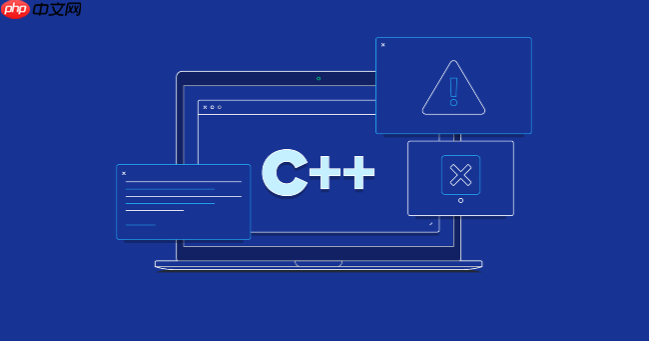
使用C++中的Folly库,首先要理解它是一个由Facebook开发的开源高性能组件库,专为大规模服务设计,提供了许多现代C++特性封装、高效数据结构、并发工具和异步编程支持。要在项目中使用Folly,需完成安装配置并了解其核心功能模块。
Folly依赖较多系统库,编译前需确保环境满足要求。以Ubuntu为例:
例如编译命令:g++ main.cpp -std=c++17 -lfolly -levent -lglog -lgflags
1. 字符串处理(String)
立即学习“C++免费学习笔记(深入)”;
Folly提供高效的字符串操作函数,替代std::string部分低效场景。
#include <folly/Conv.h>
#include <iostream>
<p>int main() {
std::string str = "42";
int num = folly::to<int>(str); // 安全快速转换
std::cout << num * 2 << std::endl;
return 0;
}</p>2. 高性能容器(F14哈希表)
Folly的F14系列哈希表在速度和内存上优于std::unordered_map。
#include <folly/F14Map.h>
#include <iostream>
<p>int main() {
folly::F14FastMap<std::string, int> map;
map["apple"] = 1;
map["banana"] = 2;</p><p>for (const auto& [k, v] : map) {
std::cout << k << ": " << v << "\n";
}
return 0;
}</p>3. 异步编程(Future/Promise)
folly::Future 和 folly::Promise 支持链式异步调用,适合高并发服务。
#include <folly/futures/Future.h>
#include <thread>
#include <iostream>
<p>void asyncExample() {
auto [promise, future] = folly::makePromiseContract<std::string>();</p><p>std::thread t([p = std::move(promise)]() mutable {
std::this_thread::sleep_for(std::chrono::seconds(1));
p.setValue("Hello from future!");
});</p><p>future.thenValue([](std::string str) {
std::cout << str << std::endl;
}).wait();</p><p>t.join();
}</p>folly::Synchronized 可简化互斥访问,避免手动锁管理。
#include <folly/Synchronized.h>
#include <vector>
#include <iostream>
<p>int main() {
folly::Synchronized<std::vector<int>> vec;</p><p>vec.withLock([](auto& v) {
v.push_back(1);
v.push_back(2);
});</p><p>auto copy = vec.copy();
for (int x : copy) std::cout << x << " ";
std::cout << std::endl;</p><p>return 0;
}</p>基本上就这些。Folly功能丰富,适用于需要极致性能的服务端开发。熟练掌握其核心组件后,能显著提升C++程序效率和可维护性。注意文档更新快,建议常看GitHub官方示例。
以上就是c++++怎么使用Folly库_c++高性能组件库功能与应用示例的详细内容,更多请关注php中文网其它相关文章!

Copyright 2014-2025 https://www.php.cn/ All Rights Reserved | php.cn | 湘ICP备2023035733号